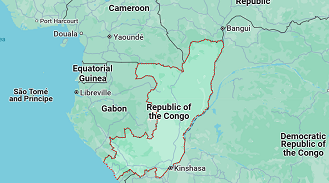The Republic of Congo (RoC) is preparing to launch a Gas Master Plan and new Gas Code, all while enticing investment in crude exploration and production.
Speaking during a press conference at African Energy Week 2024, Bruno Jean-Richard Itoua, the country’s Minister of Hydrocarbons, outlined how these policies will drive oil and gas projects forward, all while spearheading sustainable growth.
Towards Increased Oil Production
Leveraging policy and reform to attract new investments in exploration and production, the RoC expects to launch a new licensing round by Q1, 2025. According to Minister Itoua, “the round will put the RoC on the market.” He noted that significant work has already been done by various companies in the region, setting the stage for a successful bid round.
“We have an attractive legal framework…” Itoua added, underscoring the country’s intent to enhance investor confidence. Currently, the RoC produces an average of 274,000 barrels per day (bpd). The Minister revealed ambitious plans to increase this output to 500,000 bpd within the next three to five years, driven by tangible projects and enhanced industry collaboration. “Our target is clear: we want to significantly ramp up production based on concrete, actionable projects,” he said.
New and existing oil and gas producers in the RoC have committed to supporting this goal and are ramping up investments to boost output. On November 7, energy players Unite Oil & Gas and ARIES Energy formed Bomoko Energy to acquire and develop local hydrocarbon assets. In October 2024, Perenco achieved 80,000 bpd following a $300 million investment, aiming for 100,000 bpd by 2025 with new field developments. Meanwhile, Cogo, the Congolese subsidiary of China Oil Natural Gas Overseas, announced in October 2024 a $150 million investment to enhance production in the Conkouati-Koui and Nanga III fields.
Focus on Downstream Development
In the downstream sector, the RoC aims to boost domestic access. As new developments come online, Minister Itoua emphasized that “first, we give priority to our citizens, then to our companies. Too many people still lack access to reliable energy.” He acknowledged the complications posed by outdated refining infrastructure and emphasized the government’s strategy to upgrade existing facilities.
Currently, the RoC has one oil refinery in the coastal city of Pointe-Noire, which has a capacity of 1 million tons per year. However, it only processes 600,000 tons annually while the country’s needs are estimated at 1.2 million tons.
To address supply shortfall, the RoC is in the process of commissioning a new refinery. The $600 Atlantic Petrochemical Refinery, to be developed by China’s Beijing Fortune Dingheng Investment, will produce a range of refined petroleum products including automotive and aviation gasoline, LPG, diesel, lubricants, bitumen and kerosene.
“Seventy percent of the equipment is already produced and we expect the refinery to be operational by next year,” Minister Itoua shared. This private project will grant investors the flexibility to decide on the type of crude processed, including the option to import crude oil. “The new refinery will help meet domestic needs first, and only then will we consider export opportunities,” Itoua remarked.
Promoting Environmental Sustainability
Minister Itoua also highlighted the country’s commitment to environmental sustainability, particularly through carbon capture initiatives. The RoC’s focus on sustainable industrial growth is rooted in its history with the timber industry, and the country aims to balance this legacy with modern environmental practices. “We started our development journey through forestry, and now we are working to preserve these forests for future generations,” the Minister said.
Covering 23 million hectares – two-thirds of the country’s territory – the country’s forest acts as a vital carbon sink, absorbing about 130 million tons of carbon annually. Minister Itoua explained that, “We have the largest potential for carbon capture in the Congo Forest. It’s our responsibility to protect this resource while continuing to develop our industries.”
In 2024, the RoC received its first $8 million payment in carbon offsets as part of a World Bank agreement, highlighting projects like TotalEnergies’ Bacasi initiative, which aims to conserve and reforest 93,000 hectares.
With a clear roadmap for increasing production, upgrading infrastructure and committing to environmental protection, the RoC will host the first edition of the Congo Energy & Investment Forum from March 25-26, 2025 in Brazzaville. Organized by Energy Capital and Power – in partnership with the Ministry of Hydrocarbons and with the support of the African Energy Chamber – the event will gather international investors and Congolese stakeholders, setting the tone for the country’s future in the global energy market.

